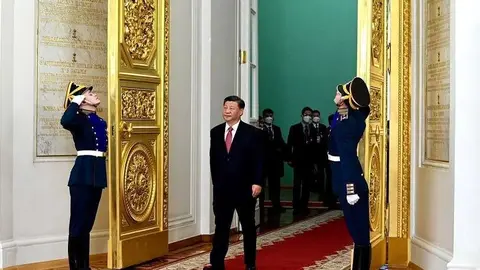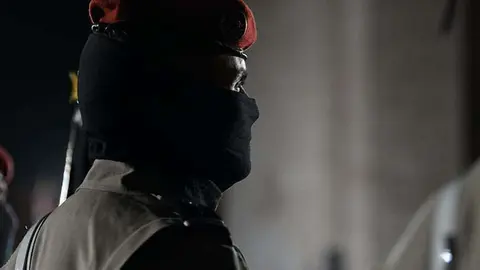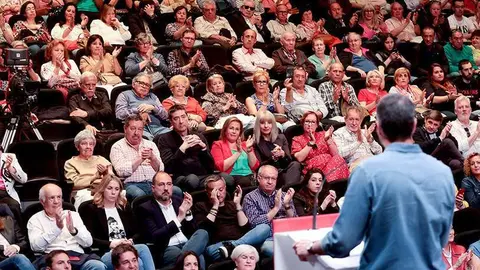President Sánchez and the Secret Services

The acting president, Pedro Sánchez, is the object of the greatest interest on the part of the Secret Services accredited in Spain to the National Intelligence Centre (CNI) and of those others who are not, but who do not care.
Their stealthy work in our nation focuses on what the head of the Executive says, does not say, contradicts, does, does not do and undoes. Also in the arguments repeated by his vice-presidents and ministers -sometimes vocal and other times slippery or sparing with words-, and in the high-flown verbal humiliations and snitches that the Catalan separatist leaders deliver day in and day out.

Foreign spies and secret agents gather data and opinions from their conscious collaborators, unwitting informants and useful fools, about the collision course that the candidate for power in Spain is following at full speed. They seek to find decisions that could jeopardise the interests of their respective countries, and all the information gathered from human sources, open or by electronic incursions, they contrast it, analyse it, convert it into intelligence and send it encrypted to their capitals by fast and secure channels.
Once in the possession of the central organs of the Intelligence Services - which is what most of the organisations dedicated to uncovering the secrets and hidden intentions of the different states prefer to call themselves - they synthesise it and turn it into a document that is placed daily on the desks of the heads of state and government of practically all the nations with which Spain maintains diplomatic relations.

A space dedicated to Spain
So it is that, every morning, the President of the French Republic, Emmanuel Macron; the Chancellor of Germany, Olaf Scholz; the President of the United States, Joe Biden; the President of Russia, Vladimir Putin; the President of China, Xi Xinping; the King of Morocco, Mohammed VI; the Prime Ministers of the United Kingdom and Israel, Rishi Sunak and Benjamin Netanyahu, respectively, and many, many other world leaders have breakfast every morning with a coffee and toast and read daily intelligence reports.
They are only a few pages long, but they capture the essence of the national and international scene. The section devoted to Spain usually contains a terse daily analysis of the continuing humiliation to which the Catalan separatists are subjecting those who claim to represent the interests of the Spanish nation.

A recently retired executive of one of the foreign intelligence services told me a few days ago how the decision of Pedro Sánchez's government to pardon Catalan separatist prisoners convicted of sedition and to push for the reduction of their sentences for crimes of embezzlement had provoked "laughter, even laughter" from his interlocutor when he read about the submission to such humiliation of the Spanish political parties in power.
He added that, although he has been in his golden retreat on the Andalusian coast for weeks now, "my master will have burst out laughing when he reads that the process to grant amnesty to the Catalan separatists is well underway". And he continued. The same goes for the decision taken by the Spanish Congress that deputies can express themselves from the podium and from their seats in Galician, Basque and Catalan".

Need for more field agents and analysts
The antennae in Madrid, Barcelona and Bilbao of the foreign intelligence services in Spain of the most important nations are overstretched. Their chiefs have long since asked their central bodies for more field agents and analysts to gather information and channel the intelligence demands coming from their capitals.
The staff of the US Central Intelligence Agency (CIA) in Spain has been reinforced. Its director, William Burns, has seen this clearly. So has the UK's Foreign Intelligence Service (MI6), headed by Richard Moore, and France's Directorate-General for External Security (DGSE), headed by the former ambassador to Algeria, diplomat Bernard Emié.
Germany's Federal Intelligence Service (BND) - headed by Bruno Kahl, a jurist and colonel in the Bundeswehr Reserve - has also made similar increases in personnel, as have most EU countries. Of course, there is also Russia's Foreign Intelligence Service (SVR), headed by Sergey Naryshkin, a former member of the KGB and a native of Leningrad like Putin; Israel's Mossad, headed by David Barbea; and Saudi Arabia's General Intelligence of the Presidency (GIP), whose director general is Khaled Ali Al-Humaidan

The intelligence services complete the reports to their presidents or heads of government on Pedro Sánchez when one of them is going to have a face-to-face meeting with the head of the Spanish government, as has just happened in Granada. Then they update the sketch of the character, his psychology, main political measures, culinary tastes, hobbies, weaknesses and the degree of fulfilment of his commitments.
So, when President Sánchez greeted the leaders of the European Union countries and other guests at the informal summit in Granada yesterday, Thursday, October 5, more than one, such as French President Emmanuel Macron or German President Olaf Scholz, when they shook his hand or gave him a courtesy hug, must have thought to themselves something like "I know you cod, even if you come in disguise".




